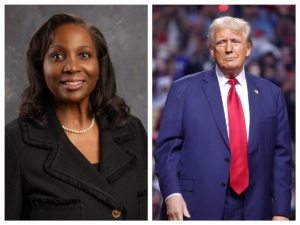A framework deal has been struck between the United States and China over TikTok’s future, U.S. Treasury Secretary Scott Bessent confirmed after weekend trade talks in Spain.
The deal, designed to transfer ownership of the video-sharing app from its Chinese parent ByteDance to an American entity, could be finalized when President Donald Trump and Premier Xi Jinping speak on Friday. “We are not going to talk about the commercial terms of the deal,” Bessent said at a press conference. “It’s between two private parties. But the commercial terms have been agreed upon.”
Chinese trade representative Li Chenggang said both governments had reached “basic framework consensus” on TikTok, emphasizing cooperation to lower investment barriers and expand economic ties. Wang Jingtao, deputy director of China’s Cyberspace Affairs Commission, added that consensus was also reached on the handling of intellectual property rights, including TikTok’s algorithm, a central dispute in the negotiations. He noted the sides agreed to appoint a partner responsible for U.S. user data and content security.
READ ALSO: TikTok ban deadline will keep being extended – Trump explains why
The Madrid talks marked the fourth round of negotiations since Trump launched tariffs on Chinese goods in April. Bessent said a fifth round was expected “in the coming weeks,” with the possibility of a Trump–Xi summit later this year or early next year to cement a broader trade pact.
U.S. Trade Representative Jamieson Greer stressed that negotiators were “very focused on TikTok and making sure that it was a deal that is fair for the Chinese” while also ensuring “U.S. national security concerns” were respected.
During Joe Biden’s presidency, both Congress and the White House had backed a ban on TikTok unless ByteDance relinquished control, citing fears that Chinese law could force companies to share data with the government. The app’s algorithm, which drives what content users see, also heightened U.S. concerns.
Trump, who has repeatedly postponed the deadline for TikTok’s shutdown, faces a Wednesday cutoff for the current extension. Although he has not addressed the deadline directly, he has claimed the authority to delay the ban indefinitely.
Wendy Cutler of the Asia Society Policy Institute said the latest development suggests “both sides have found a way forward to transfer ownership to a U.S. company.” She added, “If accurate, this would represent an important step forward in resolving a lingering bilateral dispute.”
Alongside TikTok, discussions touched on fentanyl-related chemicals, Chinese investment rules, and export controls. Bessent said both governments showed strong alignment on cracking down on money laundering tied to drug trafficking.
READ ALSO: Trump hits snooze again on TikTok ban, extends deadline without legal clarity
Chinese Vice Premier He Lifeng described the talks as “candid, in-depth and constructive,” according to Xinhua. Yet Li Chenggang warned against the “politicization” and “weaponization” of trade and technology, insisting that Beijing would “never seek any agreement at the expense of principle, the interests of the companies, and international fairness and justice.” He criticized Washington’s national security arguments as “a typical, unilateral, bullying practice” and demanded that restrictions on Chinese companies be lifted. “The U.S. side should not on one hand ask China to accommodate its concerns, whilst at the same time continue to suppress Chinese companies,” he said.
The negotiations were also overshadowed by Trump’s call for NATO nations to cut off Russian oil purchases and impose 50% to 100% tariffs on China, remarks that drew a sharp rebuke from China. The Commerce Ministry labeled the comments “a classic example of unilateral bullying and economic coercion.”
China’s foreign ministry did not confirm whether Trump had been invited for a state visit. Analysts, however, point to October’s Asia-Pacific Economic Cooperation summit in South Korea as a potential venue for a high-level meeting.
Cutler cautioned that time is running short for a comprehensive trade deal. “What we are more likely to see is a series of ad-hoc deliverables, possibly a Chinese commitment to buy more U.S. soybeans and other products, a U.S. agreement to hold back on announcing certain further U.S. high-tech export controls, and another 90-day rollover of the tariff pause,” she said.
READ ALSO: Elon Musk faces backlash from British politicians after anti-migrant rally comments










